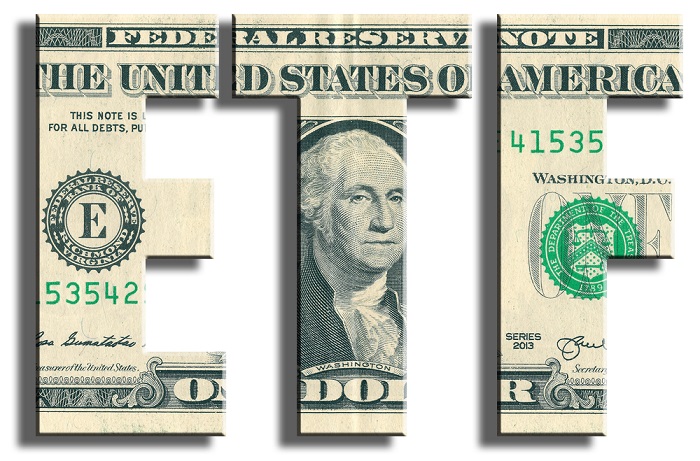 Gun-free ETFs exist but no one seems interested in them. (Photo: Shutterstock)
Gun-free ETFs exist but no one seems interested in them. (Photo: Shutterstock)
(Bloomberg) –First it was tobacco. Then fossil fuels. Now guns have become a target on Wall Street.
But despite the outcry over the Feb. 14 school shooting in Florida, most ordinary investors seem unwilling to put their money where their outrage is.
Recommended For You
Since 17 people were gunned down in America's latest mass killing, just $82 million of the $22 billion that's flowed to exchange-traded funds went to the 50 or so products that put money to work in accordance with environmental, social and governance principles — like screening out gun stocks.
To put that figure in context, that's less than these funds absorbed in the week immediately preceding the atrocity, according to data compiled by Bloomberg. In all, they sit atop less than 0.2 percent of the U.S. ETF industry that's approaching $3.6 trillion.
The data are a sobering reminder about how, for all the clamoring for Wall Street to take on a bigger role as moral arbiter, ordinary investors just don't seem to vote with their portfolios. And while it's the asset management behemoths like BlackRock Inc. and Vanguard Group, whose mutual and exchange-traded funds make them the largest stakeholders in the firearm manufacturers that bear the brunt of public criticism, investors don't need the fund companies to take action for them.
"Investors have many choices now to make a positive impact on society and to align their investment with their personal values," said Linda Zhang, chief executive of Purview Investments, which offers an actively managed ESG ETF portfolio. "The time is really to act now, there are no excuses not to if you strongly believe in these principles."
So what's going on?
Cost analysis
ESG fund management fees start at 0.12 percent and go up to 0.95 percent, significantly more than the 0.2 percent an investor can pay for a Russell 2000 ETF that includes three gun companies. The median for the socially responsible funds is 0.45 percent.
There's a tax hit associated with selling out of one fund and buying into another, discouraging capital reallocation from a gun holder to an ESG ETF.
And there's a perception (and, often, a reality) that if ETFs remove gunmakers and other companies from the so-called sin industries, their performance will suffer.
Take BlackRock's MSCI KLD 400 Social ETF, which tracks a measure that explicitly avoids companies involved in "civilian firearms." It's returned an average 10 percent over the last three years, lagging the S&P 500 Index by almost a percentage point. Shorter-term, the performance is better. Over one year, the gap narrows to a few basis points and the fund beat its benchmark for its broader universe.
Access denied
Access also comes at a price. While you can buy and sell pretty much anything on the most popular online brokerages, opting for one of more than 50 ESG ETF could cost more.
Many of these funds are missing from commission-free platforms that the likes of Schwab, E*trade and TD Ameritrade offer, which can save investors $7 every trade. Getting on these platforms requires assets, track record — and money — something that not all ESG providers can deliver. Just six of Schwab's more than 200 commission-free ETFs are ESG; at E*Trade it's seven, and at TD Ameritrade it's 11.
Access may be expanding, though. Morgan Stanley offers an impact portfolio as part of its new online advice service, and Betterment — one of the largest independent robo-advisors — added a socially responsible investing portfolio. BlackRock, for its part, already has 10 ESG ETFs, if investors know where to find them.
Another impediment is that most 401(k) retirement accounts don't offer ETFs, leaving a large swath of retail investors unable to vote with their cash. About 54 million Americans were contributing to a 401(k) as of 2015, data from the Investment Company Institute suggests. By contrast, a paper produced for the Department of Labor showed only 17 million households had a brokerage account as of 2013.
Other activism
It's also possible that retail investors prioritize other means for expressing an opinion on the raging debate over guns. A major flash point since the Florida shooting has been corporate relationships with the National Rifle Association, with airlines, hotels, car-rental firms and other businesses cutting ties with the pro-gun group by ending member discounts.
As for hitting the gun makers on the equity market, moms and pops do have the option to vote with their feet. Greater access and visibility will only translate into assets if investors decide that moving their cash out of gun stocks will put pressure on weapons manufacturers. If not, maybe they will just call their congressman instead.
"Investors have the choice," said Martin Kremenstein, head of ETFs at Nuveen, which runs eight ESG funds, all of which exclude companies that earn 50 percent of their revenue, or more than $100 million, selling civilian firearms. "They have enough opportunity to buy the product out there. If there's something they care about, they can make that decision."
© 2025 ALM Global, LLC, All Rights Reserved. Request academic re-use from www.copyright.com. All other uses, submit a request to [email protected]. For more information visit Asset & Logo Licensing.







